Peter Nielsen
A Semi-Automated Solution Approach Selection Tool for Any Use Case via Scopus and OpenAI: a Case Study for AI/ML in Oncology
Jul 10, 2023Abstract:In today's vast literature landscape, a manual review is very time-consuming. To address this challenge, this paper proposes a semi-automated tool for solution method review and selection. It caters to researchers, practitioners, and decision-makers while serving as a benchmark for future work. The tool comprises three modules: (1) paper selection and scoring, using a keyword selection scheme to query Scopus API and compute relevancy; (2) solution method extraction in papers utilizing OpenAI API; (3) sensitivity analysis and post-analyzes. It reveals trends, relevant papers, and methods. AI in the oncology case study and several use cases are presented with promising results, comparing the tool to manual ground truth.
On the Fitness Landscapes of Interdependency Models in the Travelling Thief Problem
Feb 28, 2022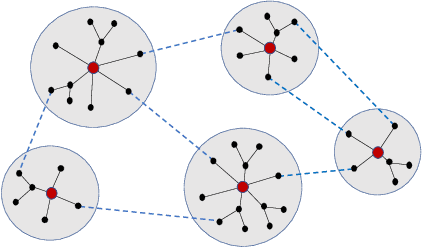


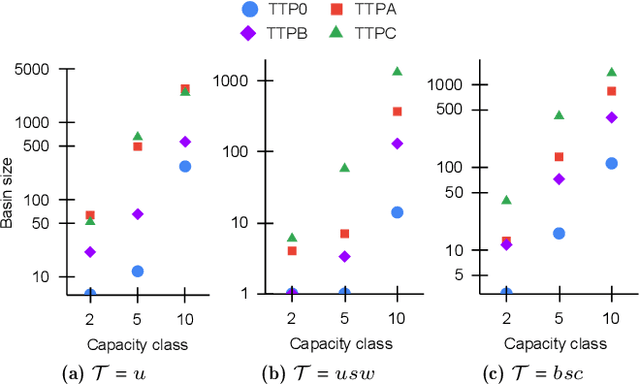
Abstract:Since its inception in 2013, the Travelling Thief Problem (TTP) has been widely studied as an example of problems with multiple interconnected sub-problems. The dependency in this model arises when tying the travelling time of the "thief" to the weight of the knapsack. However, other forms of dependency as well as combinations of dependencies should be considered for investigation, as they are often found in complex real-world problems. Our goal is to study the impact of different forms of dependency in the TTP using a simple local search algorithm. To achieve this, we use Local Optima Networks, a technique for analysing the fitness landscape.
MATE: A Model-based Algorithm Tuning Engine
Apr 27, 2020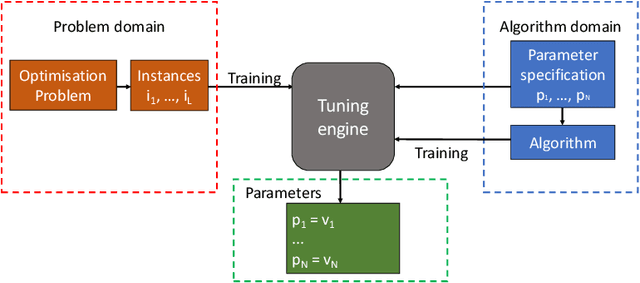
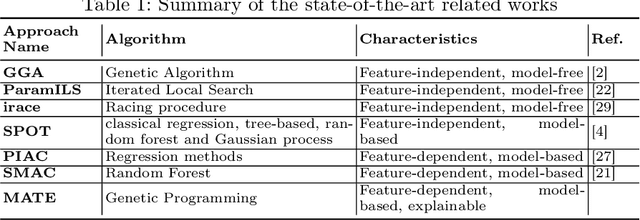
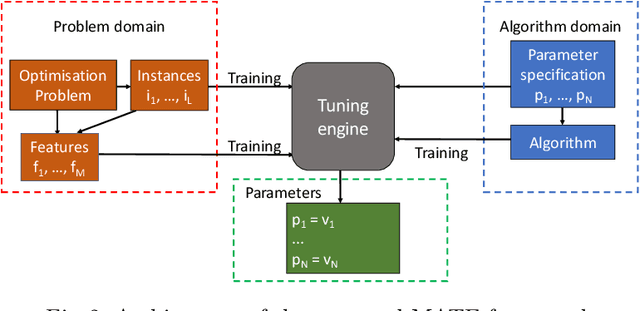

Abstract:In this paper, we introduce a Model-based Algorithm Turning Engine, namely MATE, where the parameters of an algorithm are represented as expressions of the features of a target optimisation problem. In contrast to most static (feature-independent) algorithm tuning engines such as irace and SPOT, our approach aims to derive the best parameter configuration of a given algorithm for a specific problem, exploiting the relationships between the algorithm parameters and the features of the problem. We formulate the problem of finding the relationships between the parameters and the problem features as a symbolic regression problem and we use genetic programming to extract these expressions. For the evaluation, we apply our approach to configuration of the (1+1) EA and RLS algorithms for the OneMax, LeadingOnes, BinValue and Jump optimisation problems, where the theoretically optimal algorithm parameters to the problems are available as functions of the features of the problems. Our study shows that the found relationships typically comply with known theoretical results, thus demonstrating a new opportunity to consider model-based parameter tuning as an effective alternative to the static algorithm tuning engines.
 Add to Chrome
Add to Chrome Add to Firefox
Add to Firefox Add to Edge
Add to Edge